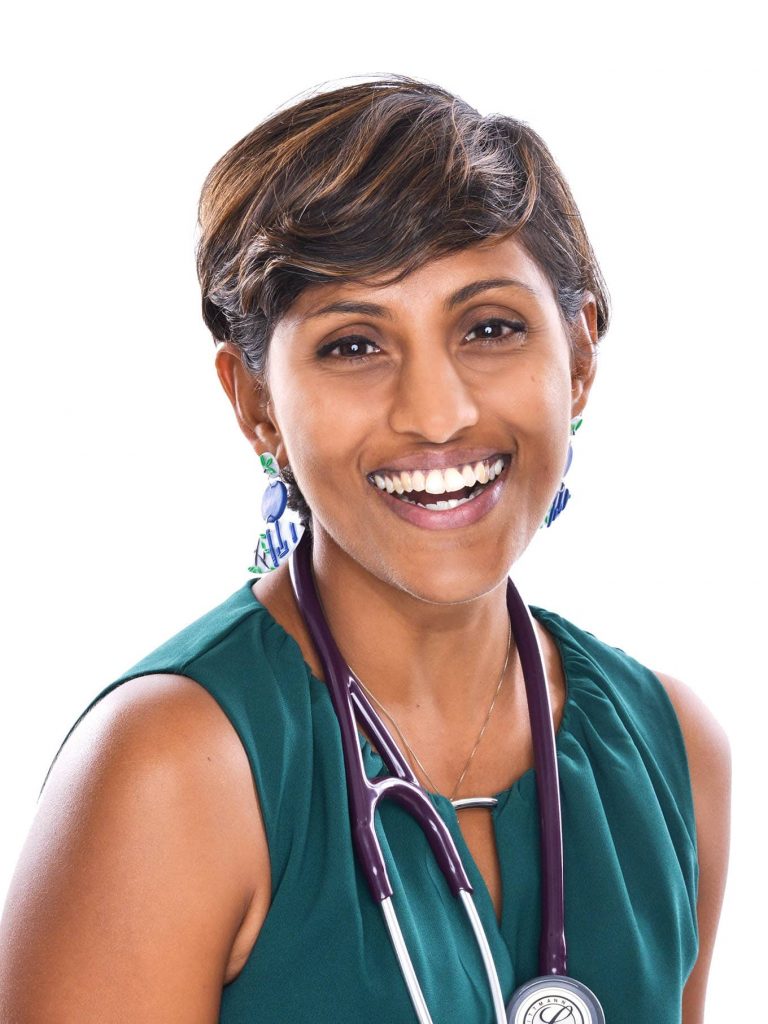We asked Dr Mythili Pandi all about Breastfeeding. Dr Mythili has been working closely with the Breastfeeding Mothers’ Support Group (BMSG) since 2010 and is an active volunteer with the charity. She is a certified lactation counselor and is a International Board Certified Lactation Consultant.
What are the most common issues you see with breastfeeding?
Many mothers think that breastfeeding is natural and will come easily when the baby arrives. Unfortunately, we find that a lot of us struggle without help in the first few weeks. Breastfeeding is entirely a new skill and something which they may not have seen before.
Traditionally, mothers of the new mothers would assist the new dyad with attaching and guidance on what is to be expected. We know that the generation of mothers we are seeing now, have very little support (particularly, in breastfeeding assistance). We refer to the period right after birth as the 4th trimester. This is a precious time when the mother and baby dyad are introduced to each other and they start to learn together.
The most common issue faced in the first few weeks is often painful breastfeeding, mothers trying to understand baby’s needs and learning what is normal and what is not.
Is it normal for there to be pain during latching on?
Breastfeeding in general should not be painful however some mothers do find that the initial latch on may be quite uncomfortable – and after a few seconds, the pain dissipates and breastfeeding is comfortable. This is called the ‘let down’ when milk starts flowing freely from the breasts.
If pain persists throughout the feed, it could mean that there is an issue with the attachment to the breasts. It is best to unlatch the baby and reattach again. If the pain continues, it is best to seek help.
Research tells us that pain inhibits milk from flowing from the breasts so it is crucial that mothers seek help when breastfeeding hurts.
What are the symptoms for mastitis? How can one avoid mastitis?
Mastitis is a painful condition where there is inflammation of the breast tissues with redness and pain. There is usually an accompanying fever and chills.
Mastitis arises when there is an area where milk has not been removed for some time and a blockage develops in the milk duct. This occurs when baby unexpectedly sleeps for longer periods, or the mother has missed a breastfeed or a pump. Sometimes it may also occur when there is an injury to the breast tissue, for example tight underwire from a bra or a bag strap across the chest.
Mastitis is avoided with regular breastfeeding and frequent milk removal. So if there is a planned separation between the mother and baby, it is recommended that the mother brings along her breast-pump or hand express into a clean container for her baby.
Hand expressing is a highly useful skill for all breastfeeding mothers to have! There is no equipment needed and it is safe for the breast (all that is needed is a pair of hands (and a clean container is useful).
What are the symptoms for thrush? Can thrush be passed on to the baby?
Thrush often occurs when it is least expected. It is uncommon to have thrush infections in the early postpartum period – it usually occurs later. It is a challenging diagnosis as symptoms are not always clear – mothers often report deep stabbing breast pain, skin discolouration and some nipple tenderness.
Thrush often coincides with recent use of antibiotics in mother or baby, thrush in the baby’s mouth or a fungal diaper rash or a vaginal yeast infection of the mother. Fungal infections can be persistent and take up to 3 weeks to clear especially in the hot and humid climate in Singapore.
In babies, thrush appears as fuzzy white plagues in their mouth which are not easily rubbed away. See a doctor who would be able to diagnose it and treat it adequately.
How can one avoid baby falling asleep on the breast?
Babies love to sleep when held by their mother – the familiar smells, sounds and loving touch is all they need to feel secure and fall asleep. This is normal. Challenges arise when babies fall asleep at the breast too quickly and do not take in a sufficient amount of milk.
It is recommended that newborns feed for about 20-40mins at the breast. Some babies take longer to finish a feed and some, much shorter. What we look for is effective suckling at the breast (i.e. a baby who is swallowing milk frequently after each suckle). And towards the end of a feed, babies appear more relaxed and drowsy and may continue slow suckle to remove all the creamier milk filled with fats.
When babies fall asleep easily, mothers find that removing babies’ swaddle and having them skin to skin on their chests works well. When babies are placed prone on their mothers’ chest, their reflexes are stimulated and they tend to seek the breasts and suckle on their very own! This is best seen in a newborn – called the Breast Crawl.
It is also important to remember that babies need to feed often in the early weeks, at least 8-12 times or more in 24 hrs. Frequent feeding is a great way to get the mother’s breastmilk supply to increase too!
Having a new born baby is an emotional time and having trouble breastfeeding can compound issues – what advice do you give new mothers?
There are massive hormonal changes following childbirth and this can contribute to feelings of helplessness and hopelessness in new mothers. These emotions can be quite scary for new mums and worrying for the rest of the family as well.
There is evidence which states that when a mother spends lots of time with her baby skin to skin and breastfeeds, the hormone levels of oxytocin increases. Oxytocin is commonly known as the ‘love hormone’ which gives the sense of belonging and comfort to both the baby and the mother.
Prolactin (which surges at nighttime) also works to help the mother and baby with sleep. This hormone is released by the pituitary gland and also has an important role to play in increasing the breastmilk supply. In this way, nursing often at night may actually work for the breastfeeding dyad to increase the breastmilk supply and help the mother cope with the waves of emotions.
Another common worry is that breastfeeding reduces the amount of sleep a mother gets. There is a good study which refutes this from Doan which states that exclusively breastfeeding mothers slept 40mins longer than mixed- or formula feeding mothers. In another study, “not exclusively breastfeeding” was a risk factor for postpartum depression and sleep issues (Dorheim).
A landmark study by Dr Kathleen Kendall-Tackett presented that women who breastfeed have significantly more hours of sleep, better physical health, more energy and lower rates of depression as compared with mixed- or formula- feeding mothers.
So ultimately what may affect the mental health of the mother is having a baby and not the method by which the baby is fed. And breastfeeding may actually help the mothers mental wellbeing more than the alternative methods of feeding.
What 3 key pieces of advice would you give a new breastfeeding mother?
Firstly, choose a Baby-Friendly Health Initiative (BFHI) accredited hospital to deliver at. These hospitals have undergone a rigorous assessment into their policies and processes and have attained a certification from the World Health Organisation and the Health Promotion Board. In short, that means that they have policies which protect breastfeeding in place.
Secondly, reach out for help early. Get in touch with a qualified Lactation Consultant or a breastfeeding counsellor so that the issues are resolved early for a good start to a successful breastfeeding journey.
Lastly, spend lots of time skin to skin with baby. Babies are used to being fed all the time in the womb and they love the warmth of the womb. Being born into the world is a painful transition where they need to “ask” for feeds and cuddles. These two simple needs are quickly sorted with the simple act of being skin to skin with the mother!

Dr Mythili Pandi
MBBS (Sydney, Australia)
Dip OM (Singapore)
GDFM (Singapore)
Call 6342 4440 to make an appointment.
































